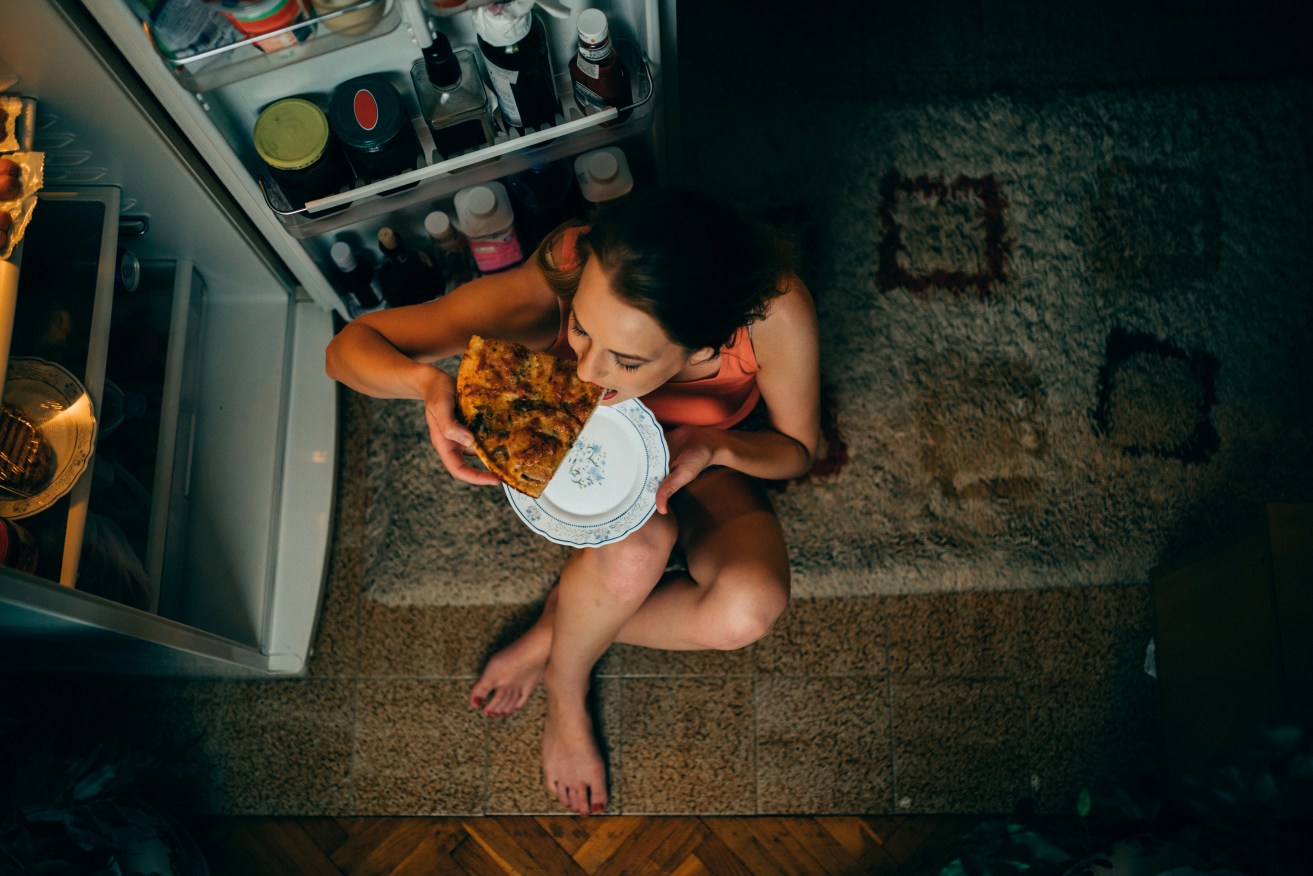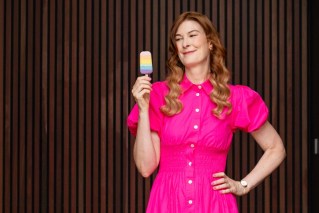Midnight snacking comes at a hefty cost


Sneaking a late-night snack makes you hungry, and burns calories at a slower rate. Photo: Getty
Who of you has not crept into the kitchen late at night with a naughty craving for Vegemite and toast?
It’s a ritual, it’s emotional, it’s the vibe.
Sure, we’ve been told more than once that midnight snacking makes us fat. Even obese. (Which should be spelt ‘obeze’ so it rhymes with cheese.)
But how is eating by the gentle light of the fridge different from eating at other times of day?
Well, there’s the fact that insulin sensitivity declines in the evening and into the night.
This means your blood sugar level rises immediately after eating your snack – and stays elevated for a longer period. This is where diabetes type 2 sows its seeds.
Body weight regulation
In a new study, researchers from Brigham and Women’s Hospital in Boston, United States, investigated the simultaneous effects of late eating on “the three main players in body weight regulation” and obesity risk.
These include regulation of calorie intake, the number of calories you burn, and molecular changes in fat tissue.
Senior author Frank AJL Scheer, Professor of Medicine, and director of the Medical Chronobiology program in the Brigham’s Division of Sleep and Circadian Disorders, said: “We wanted to test the mechanisms that may explain why late eating increases obesity risk.
“Previous research by us and others had shown that late eating is associated with increased obesity risk, increased body fat, and impaired weight-loss success. We wanted to understand why.”
The study
According to an explainer from Brigham, the researchers studied 16 patients with a body mass index (BMI) in the overweight or obese range.
Each participant completed two laboratory protocols, one with a strictly scheduled early meal, and the other with the exact same meals, each scheduled about four hours later in the day.
The participants regularly documented their hunger and appetite, and gave frequent small blood samples throughout the day. Their body temperature and energy expenditure was measured.
The team collected biopsies of fat tissue from some of the participants when they ate early and late. This was to study the effect of time-related eating on the storage of fat.
Results revealed that eating later had profound effects on hunger and appetite-regulating hormones leptin and ghrelin, which influence our drive to eat.
More fat stored than normal
Specifically, levels of the hormone leptin, which signals fullness, were decreased across the 24 hours in the late eating group compared to early eating participants.
When participants ate later, they burned calories at a slower rate and exhibited adipose tissue gene expression towards increased fat storage.
There was also less lipolysis, the metabolic process through which triacylglycerols break down.
Net result: You put on body fat that’s hard to shift.
“In this study, we asked: ‘Does the time that we eat matter when everything else is kept consistent?'” said first author Dr Nina Vujovic, a researcher in the Medical Chronobiology Program.
“And we found that eating four hours later makes a significant difference for our hunger levels, the way we burn calories after we eat, and the way we store fat.”
In other words, that piece of toast makes you hungrier for another piece. Meanwhile, the burning of calories drops away and more fat is stored than would have occurred if you had that snack at 8pm.








